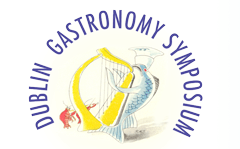Start Date
6-6-2012 11:30 AM
End Date
6-6-2012 1:00 AM
Description
This paper presents an overview of the author’s research thesis which was part of a M.Sc. in Culinary Innovation and New Food Product Development in D.I.T. The research paper explored the issues surrounding implementing a culinary tourism strategy on the Dingle Peninsula in County Kerry. The Dingle Peninsula has been selected by Ireland’s national tourism development agency (Fáilte Ireland) as a region with potential to become a leading food destination. The research methods consisted of a wide review of literature relevant to the field of culinary tourism. In addition, qualitative research methods including semi-structured interviews of tourism stakeholders on the Dingle Peninsula and through the collection of data from observation were employed. The findings of this research study illustrates that there is potential for culinary tourism on the Dingle Peninsula and that the stakeholders are aware of the impact this would have on the region, while accepting that several challenges and obstacles need to be addressed. This research study has determined that both a strong vision and effective leadership are the key ingredients to implement such a strategy, which will maximise the benefits and overcome the majority of the challenges.
Included in
Leadership the Key Ingredient: an Overview of an Exploration Study of the Issues Surrounding Implementation of Culinary Tourism Strategy on the Dingle Peninsula
This paper presents an overview of the author’s research thesis which was part of a M.Sc. in Culinary Innovation and New Food Product Development in D.I.T. The research paper explored the issues surrounding implementing a culinary tourism strategy on the Dingle Peninsula in County Kerry. The Dingle Peninsula has been selected by Ireland’s national tourism development agency (Fáilte Ireland) as a region with potential to become a leading food destination. The research methods consisted of a wide review of literature relevant to the field of culinary tourism. In addition, qualitative research methods including semi-structured interviews of tourism stakeholders on the Dingle Peninsula and through the collection of data from observation were employed. The findings of this research study illustrates that there is potential for culinary tourism on the Dingle Peninsula and that the stakeholders are aware of the impact this would have on the region, while accepting that several challenges and obstacles need to be addressed. This research study has determined that both a strong vision and effective leadership are the key ingredients to implement such a strategy, which will maximise the benefits and overcome the majority of the challenges.
